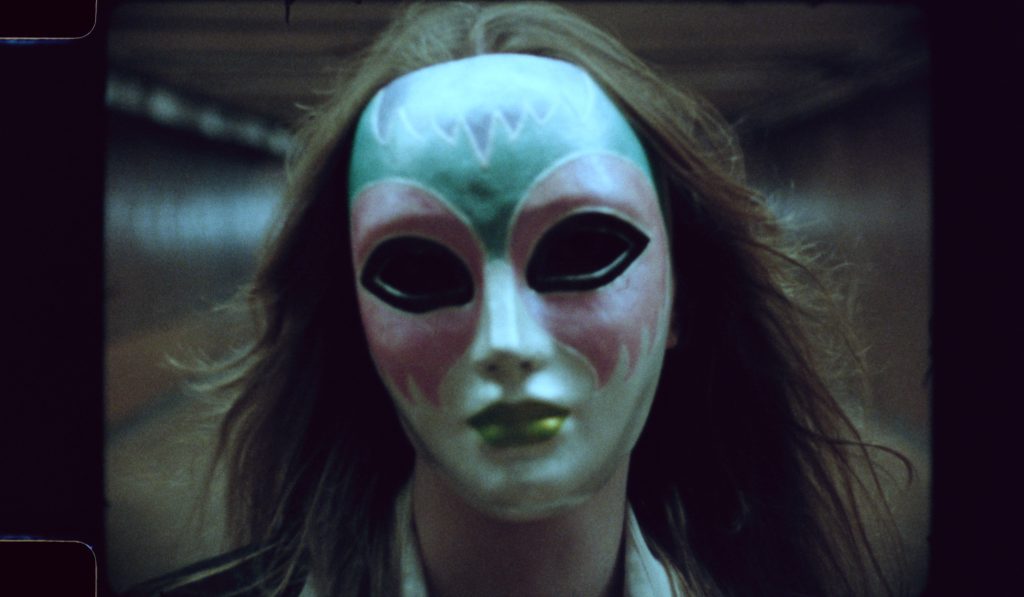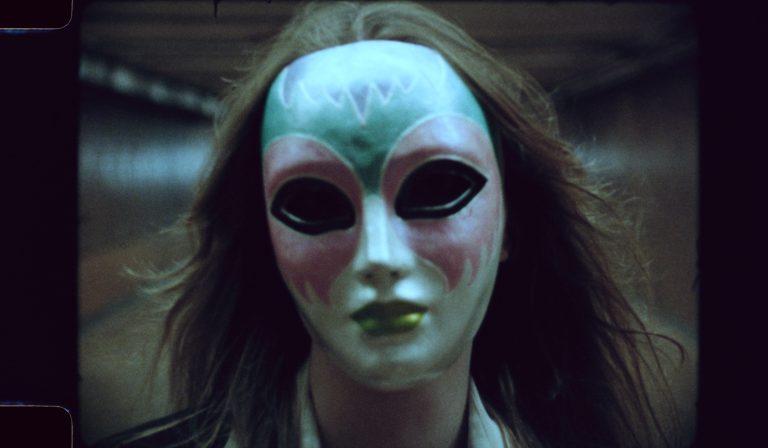
Announces new self-titled album, out August 18, via Royal Mountain Records
The Oshawa-based indie pop project Dizzy has announced their new self-titled album and shared the lead single “Open Up Wide.” A perfect synthesis of airy pop vocals and grittier instrumentals, it is produced by Grammy-nominated David Pramik (Selena Gomez, Bebe Rexha, Oliver Tree) and explores the vulnerability of sharing fresh art with a jaded audience. Sonically captivating and thematically scathing, the track is an insatiable earworm, audaciously criticizing the way industry perverts the artistic process.
The self-titled record will be out August 18th via Royal Mountain Records (North America) and Communion Music (UK/EU) and is Dizzy’s third album following the widely hailed JUNO-winning Baby Teeth and JUNO-nominated The Sun and Her Scorch, both of which saw praise from the likes of Stereogum, The Line Of Best Fit, CLASH, Exclaim!, Beats Per Minute, Consequence of Sound and many more. Dizzy are days away from a nationwide US tour supporting Joywave and will head overseas for some headline shows in the UK in May. Full dates below.
On the track, Munshaw explains,
“When we started recording the album our producer David was super conscious of cutting the fat from each song. One afternoon he encouraged us to write our parts in a simpler, more “spoonfed” fashion for easy listening, when Mack piped up cheekily “Open up wide! Here comes the airplane!”. The next morning we were all feeling a bit resentful of that mindset and “Open Up Wide” came to be while we were having our morning coffees. It’s a tongue and cheek ode to a music industry we’ve never understood all that well.“
Katie Munshaw really needed to finish the fucking quilt, and find a way to sew herself into it. The lead singer of Ontario four-piece Dizzy has been thinking a lot about the way things look and the way you can find comfort in disappearing into it all. She describes the album, a bright indie-pop beast continuing the legacy built from two previous shimmering records, as a “patchwork quilt” with each song a square, or a sliver, of her life. “None of them have all that much to do with each other and yet they wouldn’t exist without one another,” she says.
It makes for a colourful record that’s intrinsically Dizzy – one that swerves comparison, instead reflecting the shapeshifting and imperfect nature of its musicians. Avoiding the spotlight yet more confidently themselves than ever.
Two things fuelled the change in direction for Dizzy on their third record. The first is the elephant in the room, the Jane Doe on the cover, the striking mask Munshaw wears to lead Dizzy into the next chapter. “When it was time to discuss visuals for the album I had serious anxiety about being on camera. I find it strange how musicians are often introverted people yet one of the largest parts of our job is visually selling ourselves to an audience. It feels unnatural to pine for strangers’ attention to afford rent or whatever, and as someone who’s particularly sensitive it isn’t sustainable. To me the mask not only represents a calloused version of myself but it lends itself to an anonymity that I love,” she explains. “I like the idea of a female artist making the conscious decision to take her appearance out of the question for the audience.”
Another major shift for Dizzy was the location – it’s the first time the band stepped out of their comfort zone and recorded abroad, after spending a week in a cottage in Ontario and realising something wasn’t quite right. They joined their producer David Pramik, a “pop nerd” who could help them focus, and set up a home studio in a bungalow in LA for two weeks. “I was very, very against it at first,” Munshaw says. But that push and pull, in finding new ways to better be yourself, is what makes this record the boldest and most authentic Dizzy era to date.“There’s not a lot of mystery on the album,” Munshaw says, still apprehensive of how they’ll be understood. “There’s a lot of songs on here I feel a little scared showing. Some lyrics I’m like, ‘I hope my mum doesn’t hear that!’”
Munshaw had been waiting years to use the central lyric of the sombre yet vulnerable “Salmon Season”, “pink in the middle”, to capture the raw tenderness defining her sense of self despite a seemingly hardened exterior. The mask, alongside these pitched-up vocals and haunting fairground keyboard, is just an illusion of rigidity.


